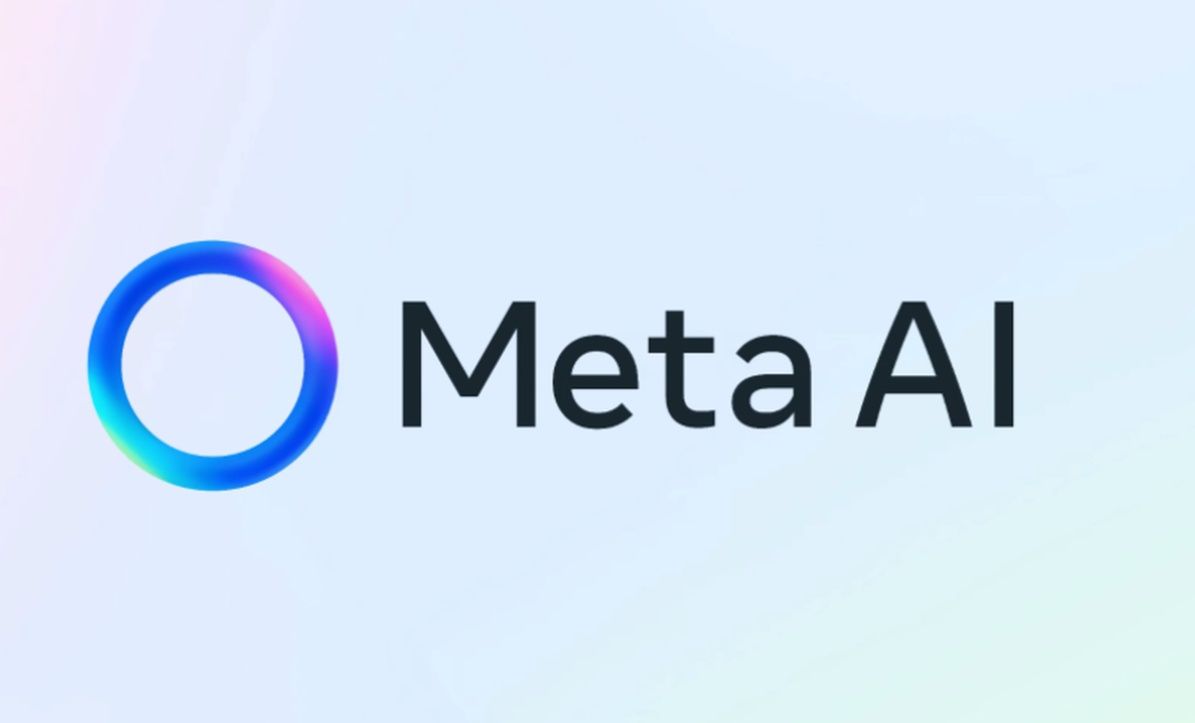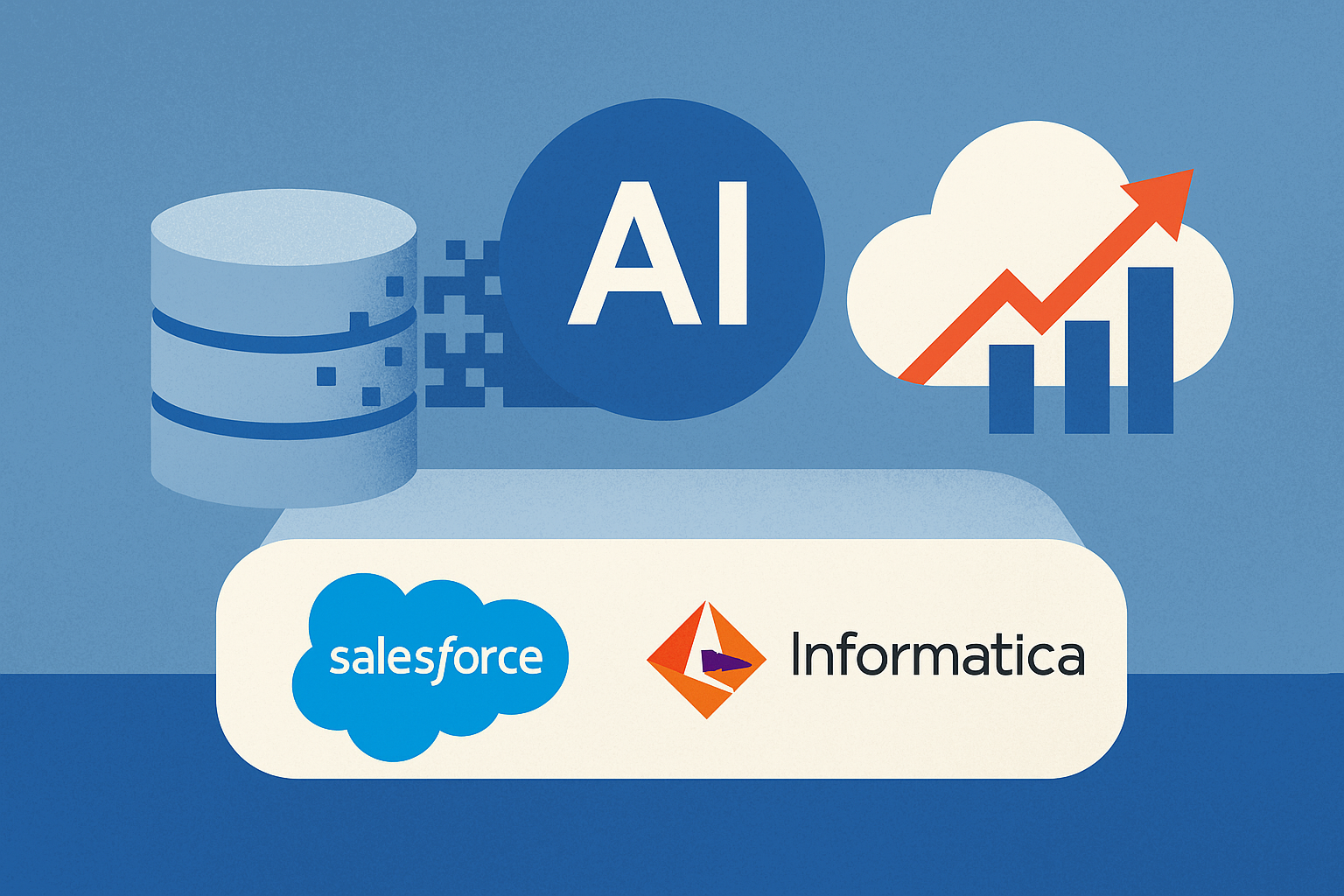Data and Analytics
Successful decisions depend on sound data as a basis; Digievo provides them solid, safe and reliable.
Design the future by deepening your data analysis
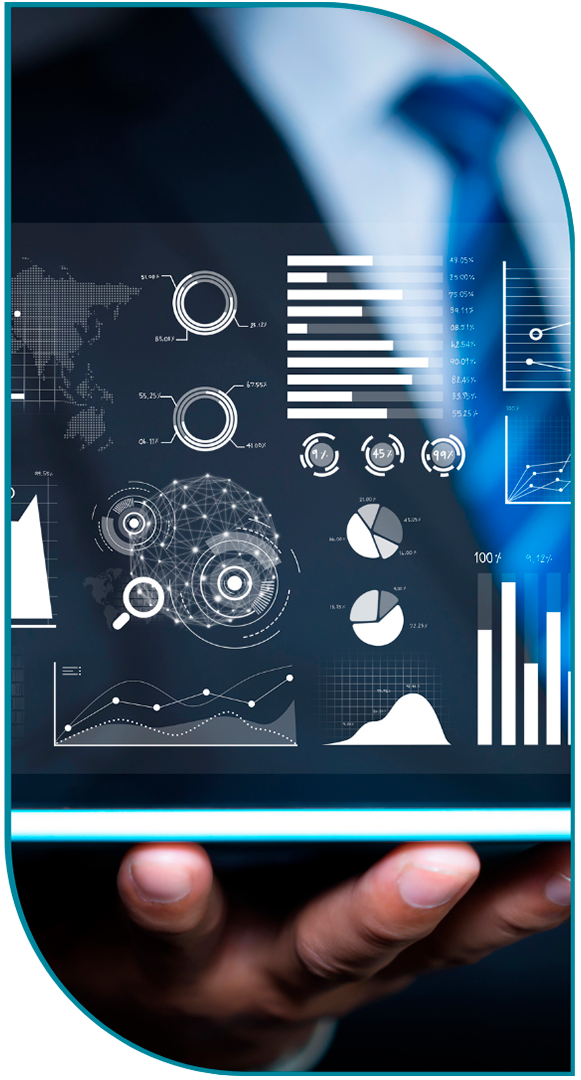
DATA STRATEGY
It is the planning and execution of approaches to collect, store, manage and analyze data.
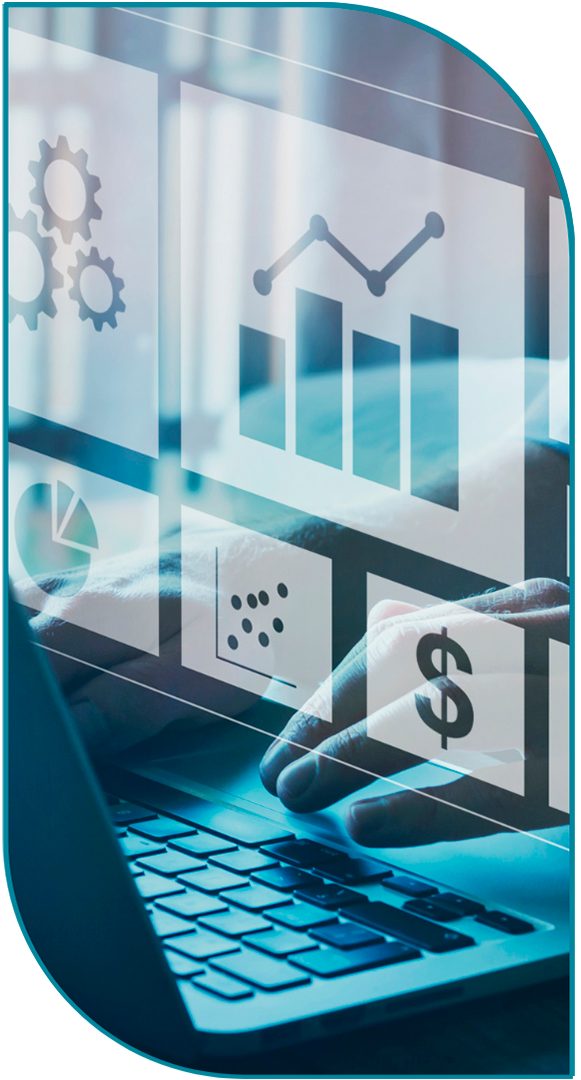
DATA ARCHITECTURE
It refers to the design, structuring and organization of data into systems.

DATA ENGINEER
Implement fundamental structuring actions for the strategic use of data.
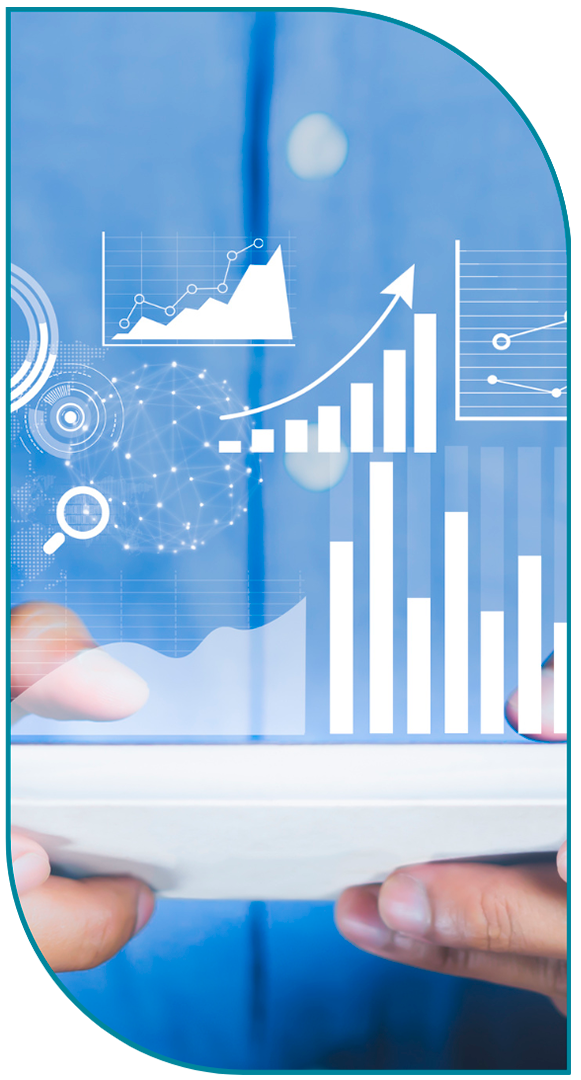
DATA VISUALIZATION DATA LAKE AND DATA WAREHOUSE
It is a centralized repository that stores raw data in its natural form…

DATA INTEGRATIONS AND MIGRATIONS
The process of transferring, combining, and synchronizing data between different systems.

DATA MINING AND MACHINE LEARNING
Technique of exploring large data sets to identify patterns and trends…

DATA PLATFORMS
Develop solutions that allow you to consume, store, process and integrate diverse data services, adopting a continuous delivery mindset

DATA GOVERNANCE AND SECURITY
They refer to the management, protection and guarantee of the integrity and privacy of business information.
Data Strategy
Data Strategy is the planning and execution of approaches to collecting, storing, managing and analyzing data. A well-defined data strategy enables companies to make more informed decisions, optimize operations and create innovative opportunities based on valuable insights.
Use cases:
Data Engineering
Data Engineering involves the design and construction of systems and infrastructures to collect, store and analyze data. By optimizing these architectures, companies ensure faster and more reliable analysis, basing decisions on accurate data and sustaining insight-driven innovations.
Use cases:
Data Architecture
It refers to the design, structuring and organization of data into systems. By establishing a solid data architecture, companies can ensure faster access, data integrity, and more accurate, informed decision-making.
Use cases:
Data Lake and Data Warehouse
Data Lake is a centralized repository that stores raw data in its natural form, while Data Warehouse organizes structured data for efficient analysis and reporting. Together, they enable companies to effectively store, access and analyze large volumes of data, supporting informed decisions and valuable insights.
Use cases:
Integrations and Data Migration
Data Integrations and Migration involve the process of transferring, combining and synchronizing data between different systems. By optimizing such processes, companies ensure consistency of information, better collaboration between departments and more accurate decisions based on unified data.
Use cases:
Data Mining and Machine Learning
Data Mining is the technique of exploring large sets of data to identify patterns and trends, while Machine Learning allows systems to learn and improve from this data. Both practices enable companies to obtain deep insights, optimize operations and predict future trends, strengthening data-driven decision making.
Use cases:
Data Governance and Security
Data Governance and Security refers to the management, protection and guarantee of the integrity and privacy of business information. By implementing robust practices in this area, companies strengthen stakeholder trust, ensure regulatory compliance and minimize risks associated with data leaks or misuse.
Use cases:
Common questions:
A well-defined data strategy aligns information collection, storage, and analysis with business objectives. This allows for accurate insights, agility in decision-making and a clearer view of market trends, giving the company a substantial competitive advantage.
A well-designed data architecture facilitates the integration of heterogeneous data sources, streamlining analysis processes and reducing the time needed for insights. This agility allows IT and business teams to collaborate more effectively, adopting new technologies and exploring innovation opportunities based on trusted data.
A robust data governance and security strategy ensures that data is treated in accordance with current regulations, protecting the company from legal and reputational risks. Furthermore, it promotes transparency in the use of data, increases stakeholder trust and allows the secure sharing of sensitive information between teams and partners.
Our difference



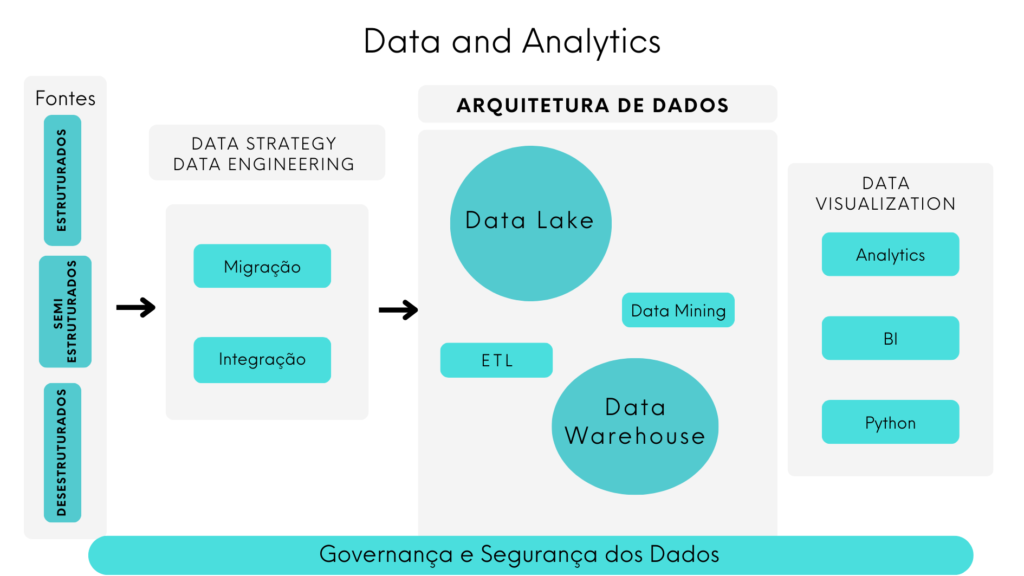
Data and Analytics
INSIGHTS FOR YOU
BLOG NEWS
Meta AI Alcança 1 Bilhão de Usuários: O Que Isso Significa Para o Futuro da Inteligência Artificial?
A notícia de que a Meta AI atingiu a impressionante marca de um bilhão de [...]
Continue ReadingARTIGO NEWS
Salesforce Adquire Informatica por US$ 8 Bilhões: A Revolução da IA e Dados e o Que Sua Empresa Precisa Saber
O mercado de tecnologia foi novamente agitado por uma notícia de peso: a Salesforce anunciou [...]
Continue ReadingBLOG ARTICLE
Does Artificial Intelligence limit human creativity and intelligence?
The presence of Artificial Intelligence in the hands of the common consumer has raised questions about security [...]
Continue Reading






